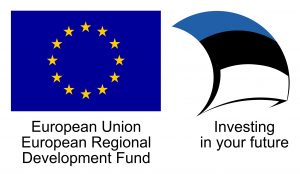Artistic Project – The True, the Fake and the False
Fabrizio Nastari (www.fabrizionastari.com)
Event: 26th of May. Kulturnhalle, Leipzig, Germany. Not open to the public.
Performers: Unassisted fold (www.unassistedfold.com)
Director: Nicolás Rupcich (www.nicolasrupcich.com)
Scenographer: Federica Zianni (www.federicazianni.com)
Program:
Fabrizio Nastari – The True, the Fake and the False (2020-2021) – for two performers (flute, bass flute and classical guitar, electric guitar) – 30 minutes
Program note:
The trigger of the composition process is the poem Il vero, il finto e il falso (the True, the Fake and the False) by Gigi Proietti (1940–2020). I took the chance to make an homage to some artists born in Rome in the last century that have tried to preserve and describe the aspects of the dialect and the popular culture of the city. Thus, as well as Gigi Proietti, the other dedicatees are the director Luigi Magni and the composers Armando Trovajoli and Ennio Morricone. The connection to the last one can be also found in the musical material, in the quotation throughout all the composition, of a famous theme from Il buono, il brutto e il cattivo (the Good, the Bad and the Ugly). The similarity with the title of the poem and the composition is evident, but musically I created a connection between Morricone’s music and the typical roman folk song called stornello. The melodic fourth of Morricone’s theme is indeed the same interval we find as accompaniment for the stornello, which utilization conduct me again to pay homage to Rome and its culture.
Personally, I found the concept of “the fake” the most interesting since it is not negative or positive by nature, and probably is the most common form in which we present ourselves or in which we see others. Thus, guitar and flute change their sound during the composition: starting with bass flute and classical guitar, slowly they will change to flute with amplification and electric guitar. The timbre changes as well, not only the sound source moves from acoustic to electronic, but they try to mask their sound attempting to imitate the other instrument; for instance, the flute plays the slap or the tongue ram and the guitar uses the palm mute technique; the guitar recurs to the electric bow to imitate the flute. Also the prerecording material by the guitar serves a similar aim. It can be difficult at first to figure out if we are listening to the real guitar on the stage or the fake one. Why we perceive ambiguity in others behaviour? When one masks himself and what is camouflaging about his real nature? The desire to find answers has nurtured the composition process and yet remained an unfulfilled attempt.
Bio:
Fabrizio Nastari (b. 1990) is an Italian composer whose aesthetic is based on the use of ironic devices. Using a broad spectrum of compositional techniques, to create contrast or to seek cohabitation for different musical texture, Fabrizio wants to reflect upon the absurdity of the time we are living in and the complexity of the human being. Irony has a primary role as inspiration and as a rhetorical and compositional tool as well.
Alongside Classical Guitar and Piano, he has studied Composition, and Choral Conducting at the Conservatorio “Ottorino Respighi” as well as Electroacoustic Composition. Since 2017 he lives in Tallinn where he got his Master degree in Classical Composition studying with Toivo Tulev and Helena Tulve.
His music has been performed by important performer such as Mivos Quartet, Livia Rado, Tema Quartet, Paolo Ravaglia, Quartetto Indaco, Estica Woodwind quintet, Prezioso String Quartet, unassisted fold etc. in important Festival in Europe such as , “Estonian Music Days”, “RavennaFestival”, “highSCORE Festival”, “UNM Festival”, “VIPA Festival”, “Le forme del suono”, “Commute Festival” and others.
He took part in several masterclasses, seminars and workshops with many composers such as Helmut Lachenmann, Julia Wolfe, Stefano Gervasoni, Michael Finnissy, Rebecca Saunders, Ivan Fedele, Filippo Perocco, and others.
He is currently pursuing a PhD degree in Artistic Research at the Estonian Academy of Music and Theatre in Tallinn.
Since 2019 he works as a production assistant in the “highSCORE Festival”.
The event is supported by the European Union Regional Development Fund (Estonian Academy of Music and Theatre EMTASTRA project)






